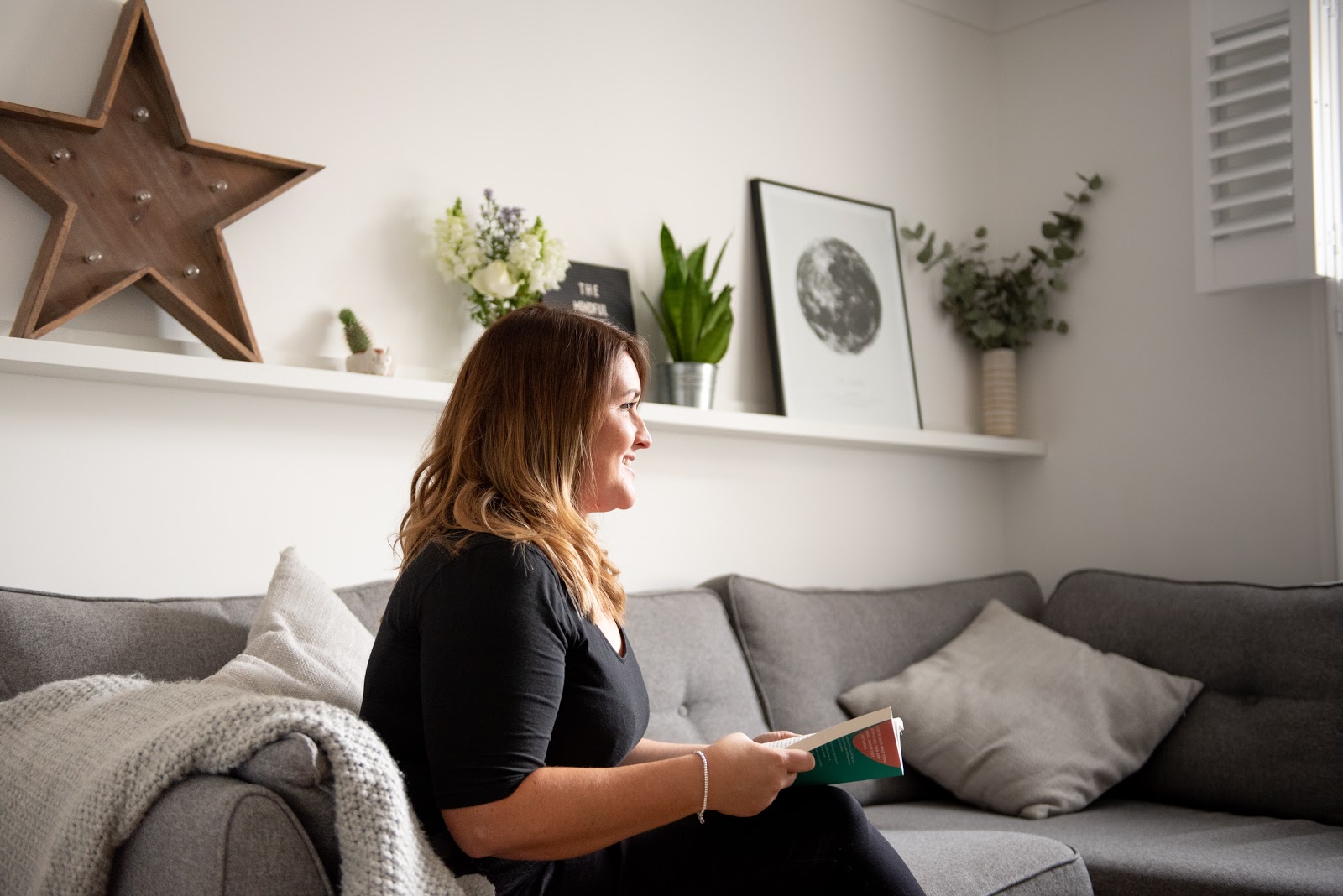Table of Contents
The task of finding the best therapy available in your area can be a tricky one. Maybe you’ve tried to type “therapist near me” into google. Then it hit you, you’re basically looking for a complete stranger to help you analyze your innermost struggles. This is one of the reasons why people are afraid of starting counseling.
There’s nothing wrong with anxious thinking. But the good news is that finding a therapist near you is not as hard as you may think. In fact, there are many options out there.
The journey toward finding the best potential therapist might be a little out of your comfort zone. It may even seem a little daunting. People commonly feel motivated and excited about finding support. However, they begin to question that decision when it comes down to actually contacting a counselor to get started.
Admitting that you might be struggling in your life is the first step to improving your mental health. The steps that follow aren’t all that difficult, but often your mind convinces you otherwise. Facing any type of change, no matter how promising, can make you apprehensive and resistant.
If you think that you might benefit from therapy, read on to find out how you can get the best therapy near you.
Why Do I Need Therapy?
In the past, mental health issues used to be something people preferred not talking about. However, these days, social movements are working towards removing the stigma associated with mental health care.
Mental illness is a huge issue worldwide and more people are speaking up as they are becoming more aware, educated and accepting. In the US alone, it’s been estimated that 1 in 5 adults go through some or other mental health struggle. [1]
Therapy is not mainly for people who are at the extreme end of a mental health problem like mania or major depression. In fact, many people we pass by every day are fighting an internal emotional war.
Therapy is for everyone who’re striving to improve their lives, have healthier relationships or reach their highest potential.
So Why do People Need Therapy?
In essence, things happen that have a negative impact on people’s lives which can be traumatic or hard for them to navigate. Some may have trouble communicating their struggles to their loved-ones while others experience symptoms of anxiety or depression.
Whether it be issues with substance abuse, childhood trauma or inherited mental health conditions. Interestingly, situations like a toxic work environment and toxic relationships in your life can lead you to a emotional crossroads.
Anyone who needs some guidance might benefit from talking to a licensed mental health counselor. They can help you process stressors in your life, confront emotional concerns, and develop methods to cope and make positive changes.
You might also need to see a therapist if you have a diagnosed mental health issue. They can provide a diagnostic assessment and offer practical tools to help you shift towards positivity and a more balanced life. Individuals with major depression, anxiety, PTSD, bipolar disorder and those who have problems with addiction can all benefit from ongoing and thorough mental health treatment.
Things are changing and the conversation around mental health is starting to make some serious steps towards better approaches and attitudes.
Which Type of Therapy Will I Need?
Don’t let anything stand in your way. If you have looked at the reasons why people need therapy and feel like you need to be searching for a therapist, go ahead.
Before committing to a specific type of treatment you may want to figure out which type of therapy might be best. Let’s be honest, most of us don’t have the expertise needed for “self-diagnosing.”
Remember, though, that learning more about therapy options can help you to develop insight into the approach that may best serve you.
We’ve put together a short description of various approaches that might help you to decide about the type of counseling you might need.
You should keep in mind that no two people are the same. For this reason, we won’t all benefit from the same type of therapy. This is true even if we are dealing with a similar issue as someone else.
Many factors play a role in helping you make the decision about which therapy is best for you. Your family history and the environment you grew up in (or any current life stressors) could affect your mental health.
Make sure that you find a type of therapy that will work for you. Some people still imagine themselves lying on a long outstretched chair talking away while the therapist simply sits there taking notes. News flash! Therapy has evolved and nowadays, you can even receive therapy online.
If you are not sure if therapy is right for you, an initial session with a licensed therapist can help you to determine your needs.
What Are The Different Types of Counseling?
Some of the most commonly used modalities used by mental health professionals to treat mental health issues include Cognitive Behavioral Therapy, Client-centered therapy, existential therapy, Dialectical Behavior Therapy, EMDR and ACT.
Cognitive Behavioral Therapy(CBT)
This psycho-therapeutic treatment helps patients realize how their thoughts and feelings can actually influence their behavior. The therapist will help you to identify the thought patterns that are influencing you. This is to get rid of those problematic thoughts that are negatively impacting your life and happiness.
Cognitive behavioral therapy is a popular approach. It has been proven to do wonders for people with conditions like depression, anxiety, addiction problems and any type of phobia. [2]
Client-Centered Therapy
With client-centered therapy, you are in control and the therapist is more of a facilitator. Instead, they only direct the therapy session. The therapist would generally assume an empathetic role.
The goal with this type of therapy is to form a healthy self-concept or to achieve self-actualization. It is based on the idea that people who develop a stable sense of “the self” tend to be more confident. They also seem to be better equipped to cope with the challenges they face in life.
This approach is often used by life coaches as well as therapists. Additionally, it is often done in more of an eclectic manner. Counselors who utilize client-centered therapy generally also use other evidence-based approaches.

Existential Therapy
This type of therapy is very different from psychodynamic therapy. It is mainly about exploring the difficulties you experience in life from a philosophical perspective.
Existential therapy focuses on the “human condition” and encourages people to take responsibility for their own actions. It also helps you to highlight your personal capacity to look life right in the face and achieve success on your own terms. [4]
Gestalt Therapy
At the center of gestalt therapy lies the holistic view that people are linked to and, all in all, influenced by the environment in which they live. The aim here is to work towards balance through personal growth.
The therapist in the scenario of gestalt therapy will involve you in role-playing exercises to help you practice ways to react and cope with “real life” situations. [5]
Dialectical Behavior Therapy (DBT)
As a type of cognitive behavioral therapy, dialectical behavior therapy considers the in which negative thinking patterns affect you. However, instead of changing these negative patterns, with DBT the focus is acceptance and change.
What makes it unique is that the person learns to accept an experience as a way to feel reassured. Then they need to work on changing the negative behaviors brought on by a negative mindset.
The experts reckon that better results are achieved using acceptance and change together than either of them would separately.
This kind of therapy prioritizes acceptance along with emotional regulation using the skills you’ll learn to cope with challenging situations or life in general. DBT mainly helps people build the following skills:
- Mindfulness
- Emotional regulation
- Distress tolerance
- Interpersonal effectiveness
Acceptance and commitment therapy (ACT)
As part of the so-called “third wave” of behavioral therapies, ACT (along with DBT among others) places a huge emphasis on developing mindfulness skills.
It’s based on the tradition of empirical science, however it challenges the ground rules. It places a large emphasis on values, acceptance, forgiveness, being present in the moment and forming a transcendent version of “the self.”
The ideal with ACT would be to create a meaningful life and accept the unavoidable pain that might come along with it.
Eye Movement Desensitization and Reprocessing (EMDR)
People who suffer from symptoms of emotional distress might benefit well from EMDR. It is a psychotherapy that equips people to handle the symptoms and emotions after a disturbing life experience.
This treatment works with your traumatic memories and your positive thoughts or beliefs. These are brought together to reduce the stress you might feel after a traumatic event.
Additionally, with the above mentioned thoughts and images all working together, your therapist will ask you to pay attention to a stimulus outside of your body such as finger tapping.
EMDR treatment mainly focuses on:
- Distress, trauma, and memories from your past
- Current situations that may be causing your distress
- Development of the skills as well as the attitudes needed to take positive actions
How Do I Find A Therapist Near Me?
Having a positive and supportive therapeutic relationship with your therapist is the most important foundation for change. Research has shown that even if you receive the perfect type of therapy, the therapist-patient alliance is the key to success.
Finding the perfect therapist can feel like a challenge. However, if you can bring a sense of persistence and patience to the process of finding the right counselor you are a step closer to experiencing lasting change in your life.
You might have considered the idea that therapy could hold the answers to the issues you’ve been having or perhaps even the ones you’ve always had.
Still sitting with the thought: “How can I find a therapist near me?”
We have some good news for you!
Getting started doesn’t have to be all that daunting. The first step to finding a therapist near you is to take a long hard look at yourself in order to discover the obstacles you need to overcome on your way to optimal mental health.
Do you need individual therapy, couples therapy, or counseling for anger management, addictive behavior or marriage counseling? You might not be sure about what you’ll need and that is totally understandable.
Remember though that, as mentioned above, a first session with a licensed mental health professional can help to illuminate the type of therapy that might be best for you.
The most important thing is to find a therapist that you resonate with. You need to be able to divulge personal information that might get a bit awkward when you don’t feel comfortable around your therapist.
The experience might even be a bit awkward regardless, and like all relationships, it’ll take some time to get to know your therapist.
Therapist Near Me: Finding the Best Therapy
Now that you know it’s not as difficult as you thought to get hold of a therapist near you, why don’t you get started?
You can type in “mental health therapists near me” into your search engine or ask your physician iif they can recommend any good options. You can also check with your insurance company to see while local therapists are covered.
Find the best fit for your situation, your options are:
- Hop online and use resources like Psychology Today
- Contact your insurance provider
- Ask your friends or family members for recommendations
- Visit a trusted GP to ask for a referral

Therapist Near Me: Finding the Best
It’s completely fine to feel a little apprehensive at first. It is something new and it might even be a little out of your comfort zone.
People who avoid therapy may resort to self-medicating if they don’t get the support that they deserve. It’s often not such a great idea to try and diagnose yourself. Avoiding therapy can lead people to self diagnose and look for solutions by reading information online that may not be reliable.
Deciding to start therapy is a big decision, but you deserve to feel better now. So don’t put off connecting with a counselor!
Resources:
- https://www.nami.org/Learn-More/Mental-Health-By-the-Numbers
- https://www.healthline.com/health/depression/cognitive-behavioral-therapy
- https://www.verywellmind.com/client-centered-therapy-2795999
- https://www.psychologytoday.com/za/therapy-types/existential-therapy
- https://www.goodtherapy.org/learn-about-therapy/types/gestalt-therapy
- https://www.webmd.com/mental-health/dialectical-behavioral-therapy#1
- https://www.psychotherapy.net/article/Acceptance-and-Commitment-Therapy-ACT
- https://www.emdr.com/what-is-emdr/





